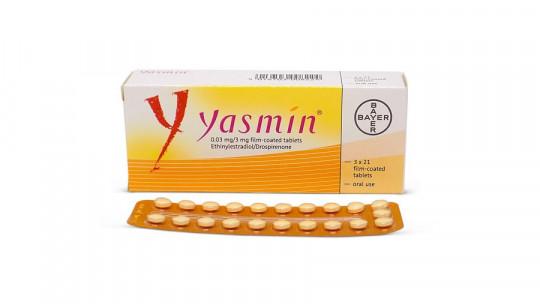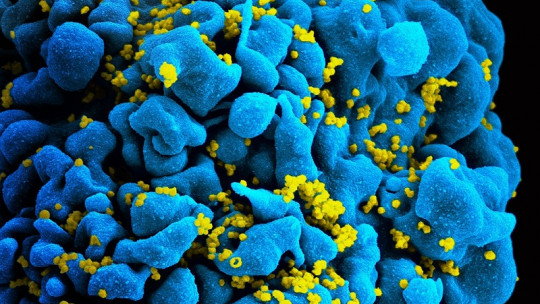
Sex is an important part of our lives, being much more than mere intercourse and representing one of the greatest physical and sensory pleasures that can be enjoyed. Although throughout history it has been tabooed and censored, fortunately with the passage of time we have been able to see how sensuality and sexuality have become more and more naturalized in recent decades, being the enjoyment of this element something sought after and desired on a regular basis today.
However, unprotected sex can have consequences: from the possibility of becoming infected with a sexually transmitted disease to the arrival of an unwanted pregnancy This is why prophylaxis is very important, using products such as condoms in order to eliminate or reduce any risk as much as possible.
Regarding the possibility of pregnancy, there are also other types of products that are very commonly used by women (both for this purpose and others): oral contraceptives. These are drugs that, through their action in the body, aim to prevent pregnancy. One of them is Yasmin which we are going to talk about throughout this article.
What is Yasmin and how does it work?
Receives the name of Yasmin the trademark for a type of reversible contraceptive developed by Bayer, which exerts its action from the administration of hormones in the body of the person who consumes it. Specifically, we are dealing with a combined hormonal contraceptive, which is characterized by being composed of more than one active ingredient with an effect on the body.
It is a relatively common drug that is sold in the form of film-coated tablets, each container in its most common presentation containing a total of 21 tablets which must always be taken daily at the same time. Once finished, a week of rest should be allowed (at which time menstruation should occur), after which and even if menstruation has not ended, the next container should be started.
Its mechanism of action is based on the introduction of hormones into the body specifically two of them: drospirenone (3 mg per pill) and ethinyl estradiol (0.03 mg per pill).
The first of them is a type of progestin, synthetic substances similar to progesterone, which contributes to regulating the menstrual cycle (and in pregnancy, to protecting and maintaining the state of pregnancy) and has an antiandrogenic and antimineralocorticoid effect.
Ethinyl estradiol is a type of estrogen which on its own is useful to help control climacteric symptoms or the development of sexual characteristics, but in combination with the previous one it serves as a contraceptive by not allowing ovulation to occur while modifying the endometrium and increasing the vaginal fluid density.
Prices
Yasmin is marketed in a large number of countries, with a price that can vary greatly depending on the location. For example, in Spain its average price in the aforementioned presentation ranges between €14.85 and €16.95, while in Colombia it can reach 60,500 pesos (although its price will soon be reduced) and in Mexico it can be found for 230-244.50 pesos.
However, because despite its effectiveness it has also been observed that its consumption can generate significant side effects and has even been associated with deaths due to thrombosis, in countries where it was initially distributed, it has now stopped being prescribed, such as the Netherlands and the United Kingdom. United.
Main indications
Yasmin is, as we have said, a contraceptive, As such, its most common indication is to prevent pregnancy In this sense, it is a highly effective drug, although it must be taken into account that it does not have any type of action nor does it prevent the possibility of sexually transmitted infections.
However, even though it is not indicated on the package insert, it is common for some doctors to also prescribe it to treat alterations in the menstrual cycle such as irregularities or excessive bleeding, as well as in the treatment of polycystic ovary syndrome.
Finally It has also been used in the treatment of acne or sometimes in premenstrual dysphoric disorder, although these effects are usually secondary to contraceptive use.
Side effects and risks
As we mentioned before, Yasmin can be an effective contraceptive, but the truth is that its use also implies the possibility of side effects.
As the most common side effects we can see that taking this drug It is associated with headaches, gastrointestinal discomfort, weight gain, and blood pressure changes, alterations in menstruation (intermenstrual bleeding) or pain in areas such as the breasts or abdomen, depressive-type mood disorders or vaginal fungal infection. It can also raise blood potassium levels.
Alterations in libido, skin rashes, fluid retention, weight changes, itching, asthma, galactorrhea or hearing difficulties may also appear.
But without a doubt one of the most serious risks and possible side effects is the fact that the use of Yasmin increases the risk of thrombosis and thromboembolism, in which blood clots form that can clog arteries and veins (something that, as we have previously reflected, has generated debate regarding its level of danger and legal proceedings against the manufacturer due to the existence of severe cases and even deaths). . This risk is highest during the first year of treatment or when returning to it after stopping.
Contraindications
Yasmin is a powerful drug that can generate relevant side effects, and that can be especially dangerous for certain sectors of the population for which it will be contraindicated.
To begin with and taking into account the fact that it increases the risk of suffering from blood clots, it is totally contraindicated in those people who have or have had some type of thrombus or embolism before or who have a higher than usual risk of suffering from them.
It should also not be taken by people who have suffered heart attacks, angina or stroke, or who suffer from a blood clotting disorder. Diabetic people, especially if there are injuries to blood vessels, it is also contraindicated. Likewise, those people who have or have had liver, breast or genital cancer, vaginal bleeding of unknown cause or kidney or liver failure should avoid it.
In addition to all this, people who are allergic to any of its components should not take Yasmine either. It should not be taken during pregnancy and is not recommended during breastfeeding. Finally, its consumption with alcohol, tobacco and other drugs is contraindicated, and if you take other medications you should consult carefully with your doctor.








